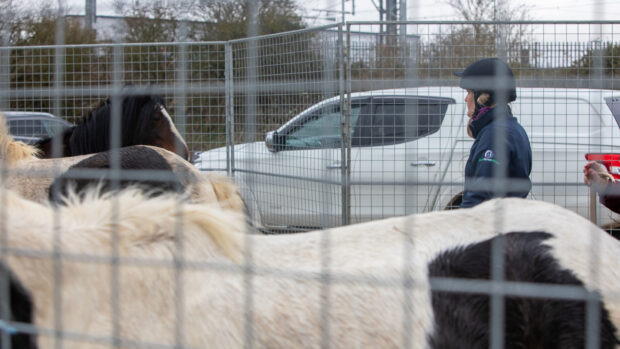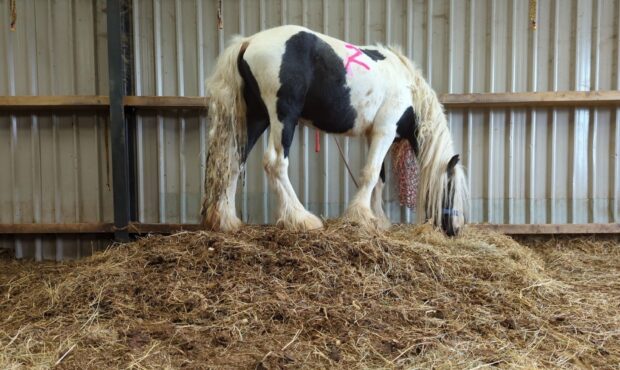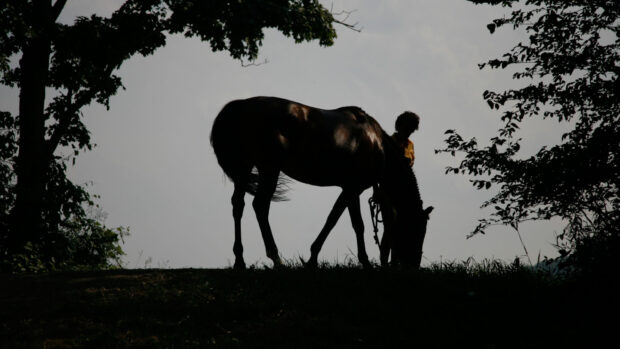Lack of owner knowledge continues to be a major link to equine welfare concerns – as researchers find licensing alone may not be the solution.
In a study published in Animals, researchers from the University of Edinburgh looked at equine welfare concerns in the UK by reviewing existing literature. The most common causes of poor welfare were “dominated by management and training practices” and the highest cited barrier to good welfare was “lack of knowledge, followed by a lack of understanding by horse owners”.
The successes and limitations of education and horse owner licensing as possible solutions to welfare concerns were analysed, following the introduction of mandatory licensing for horse owners in France, announced in 2022 (news, 13 January).
Lead author Aurelia Hall-Bromley told H&H she wanted to look at whether licences could make a difference, and whether there is evidence in the literature to suggest “licensing would have a material benefit in the day-to-day lives of our horses”.
“We know there’s not much evidence to suggest that just licensing on its own would enhance owner knowledge or ability and skill. It would need to be supported by an educational framework, because just applying for a licence doesn’t teach anybody anything,” she said, adding that licensing could be useful in cases of welfare offences – but for everyday owners education remains key.
“If someone has committed an offence you could suspend or withhold that licence. But even with the limited literature on licensing, we can say with confidence one of the limitations is enforcement. We know our resources are already stretched thin when it comes to animal welfare, so putting an even bigger burden on that would be an enormous undertaking.
“From our review, licensing doesn’t have as much promise as education; there’s a lot of welfare studies that are in favour of more regulation, but the literature indicates this is most effective when supported by education. We also can’t overlook the fact that there is a lot less available literature with regards to licensing.”
Mrs Hall-Bromley said a lot of research has been on understanding horse welfare and recognising owner knowledge gaps and behaviour change concerns, but there is still work to be done.
“We now really need to look at ‘How do we educate more effectively? How do we make sure key messages are reaching people?’ so we can say ‘This is what is going to make a difference’,” she said.
- Read the full study
The RSPCA’s equine specialist Mark Kennedy told H&H this research aligns with the charity’s Horse Sense report, which explored “the complex nature of equine welfare in England and Wales and the diverse issues different equine groups must consider” (news, 20 March).
“While there’s no single solution, both studies underscore the encouraging potential of education to improve horse welfare,” he said, adding that it was “important to acknowledge that there are many good horse owners out there”.
“We should be striving for a society where horses are treated as sentient beings and live good lives, but this requires collaborative effort from all stakeholders – welfare organisations, equestrian groups, colleges, media, and most importantly owners,” he continued.
“Crucially, both reports indicate that significant work can be done to drastically improve the lives of all horses, marking a positive step towards better equine welfare.”
In France, the introduction of a certificate of knowledge for horse owners was launched to “combat animal abuse and strengthen the link between animals and humans”, a change the French equestrian federation said had been “long-awaited by the equine sector”.
Last month the topic of qualifications to own horses was discussed by stakeholders following World Horse Welfare’s annual survey of the public’s attitudes to involvement of horses in sport (news, 12 June).
During a panel discussion, British Equestrian eventing performance director Dickie Waygood said he believes owners should have a certificate or licence to own a horse but the challenge is regulating and funding it, suggesting riders could have to pay for the exam and registration.
”The only way you’ll be able to regulate this is if you have to pass an exam to own a horse and there’s a register. I can’t see any other way of doing it effectively,” said Dickie.
- To stay up to date with all the breaking news from major shows throughout 2025, subscribe to the Horse & Hound website
You may also be interested in:

Exam proposed to own horses – but ‘the best PR is doing the right thing’

New French laws require knowledge certificates to own horses

Subscribe to Horse & Hound magazine today – and enjoy unlimited website access all year round




